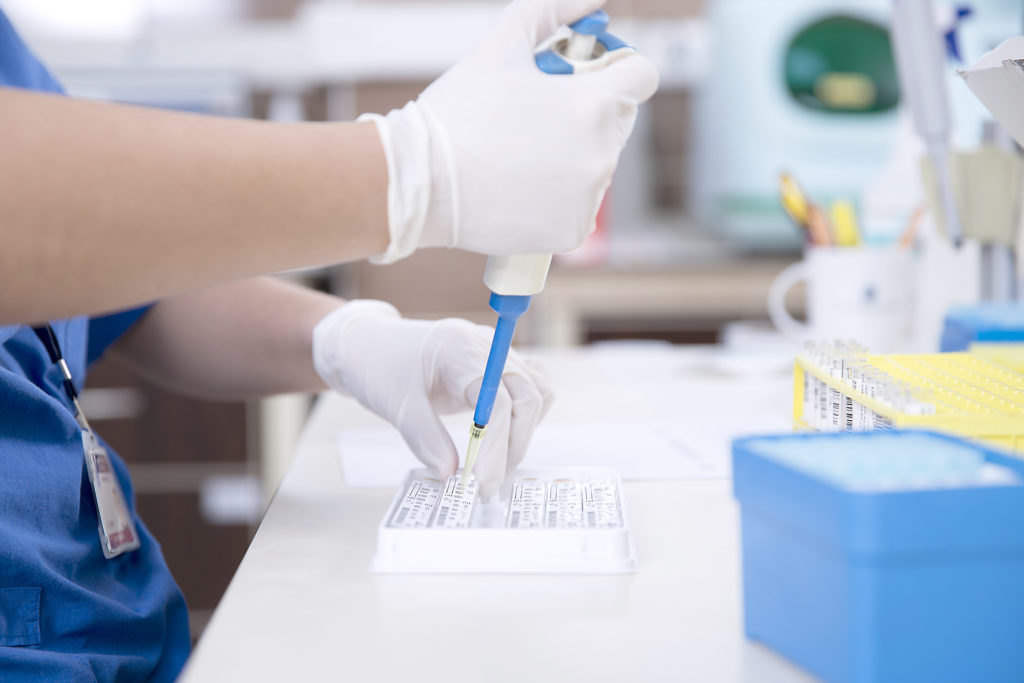
NASHVILLE (BP) – Christians will not act unethically if they receive a COVID-19 vaccine produced from a cell line originally derived from an abortion, Southern Baptist ethicist Russell Moore said Wednesday (March 3).
The president of the Ethics & Religious Liberty Commission (ERLC) addressed the morality of the Johnson & Johnson vaccine in a column after the single-dose medication gained approval from the U.S. Food and Drug Administration (FDA) Feb. 27. Unlike the previous vaccines authorized by the FDA for use in the United States, Johnson & Johnson’s vaccine uses decades-old, abortion-derived cells in its design, development and production, as well as its testing.
The two-dose Pfizer and Moderna vaccines authorized in December do not use abortion-derived cells for design, development or production, while some of the laboratory tests on their vaccines use abortion-derived cells and some do not.
In his column, Moore said even if a vaccine “might involve unethical aspects of research,” it “does not mean that a Christian inoculated from disease by such a vaccine would be sinning to do so. Taking the COVID vaccine is morally right.”
Moore’s column was published a day after the U.S. Conference of Catholic Bishops (USCCB) issued a statement on the Johnson & Johnson vaccine.
“[I]f one can choose among equally safe and effective COVID-19 vaccines, the vaccine with the least connection to abortion-derived cell lines should be chosen,” according to the Catholic bishops’ statement. “Therefore, if one has the ability to choose a vaccine, Pfizer or Moderna’s vaccines should be chosen over Johnson & Johnson’s.”
R. Albert Mohler, president of Southern Baptist Theological Seminary, addressed the issues involved for Christians regarding the COVID-19 vaccines Wednesday during his podcast, “The Briefing.”
Receiving Johnson & Johnson’s vaccine “does not invoke the highest levels of complicity in evil,” Mohler said. “That’s for two reasons – it doesn’t directly involve the abortion of any infant nor does it directly risk any future evil. You’re not taking this vaccine and thus increasing the risk that some future baby will be aborted.
“Those two issues are important,” he said. “But still the issue of abortion’s in the background, and there is a very good reason why biblically minded Christians committed to the sanctity and dignity of every human life have to take such issues into consideration.”
In addressing whether receiving the Johnson & Johnson vaccine involves “moral cooperation with abortion,” most of those asking the question “aren’t asking me if they should violate their conscientious objection to the Johnson & Johnson vaccine,” Moore wrote. “To them, I would turn to Romans 14:23 and say, with the [Catholic] bishops, seek out one of the other vaccines. But most people asking me this question don’t have conscience objections to taking the Johnson & Johnson [vaccine], but wonder if they should have such objections. Short answer: no.”
Moore wrote, “Opposing unethical means of research does not mean that people must shun medical treatments that are discovered through these means.”
Romans 14:23 says, “But whoever doubts stands condemned if he eats, because his eating is not from faith, and everything that is not from faith is sin.”
In his column, Moore provided a series of analogies to explain why he believes a person need not reject a therapy derived through an unethical method.
“Torture is wrong, no matter how many lives are saved by the information yielded from such torture,” he wrote. “We should work to end it. That does not mean, though, that a security guard who receives a call that his building is about to be attacked by terrorists needs to investigate whether that information came from torture before he evacuates the building.”
Moore said, “We should – as people committed to the dignity and sanctity of human life – continue to work to make sure that unjust means are never used, even for good purposes. That does not mean, though, that whenever knowledge is found by such means that we should pretend that we do not know it or that we should refuse to safeguard future lives with such knowledge.”
He said Christians “should always work to prevent authorization or funding of embryonic research derived from abortions.”
The ERLC has worked for decades with other pro-life organizations to eliminate government support of such destructive research.
Johnson & Johnson’s vaccine uses in its development and production the PER.C6 cell line, according to the Charlotte Lozier Institute, a pro-life research organization. That line was developed from retinal cells in an 18-week-old child aborted in 1985.
Pfizer and Moderna use in some of their testing the HEK293T cell line, which was procured from fetal tissue in the early 1970s in the Netherlands.
These cell lines are described as “immortalized” because they continue to grow and multiply. These cells, which are cloned, no longer contain fetal tissue.
David Prentice, vice president of the Charlotte Lozier Institute, has compiled an analysis of all COVID-19 vaccine candidates regarding their connection to cell lines derived from aborted babies. His analysis may be read at https://lozierinstitute.org/update-covid-19-vaccine-candidates-and-abortion-derived-cell-lines/.
















